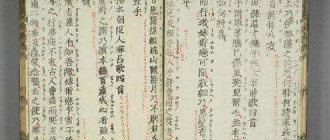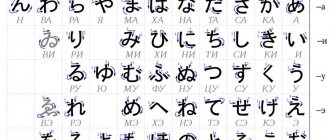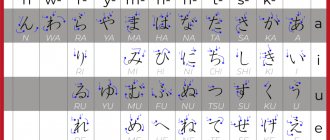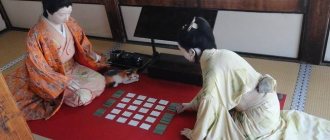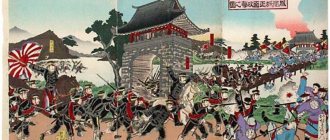My family
In this article we will look at the words used to refer to your family.
“Family” in Japanese would be 家族(かぞく) kazoku The word for “
parents ” in Japanese would be 両親(りょうしん) ryo u shin* Dad – お父さん(おとうさん) oto u san * Mom - okaasan * The vowel “U” is not read, used only to designate the longitude of the vowel “O”
Grandmother - お 祖母 ちゃん おばあちゃん)) Obaachan grandfather - お 祖父 (おじい ちゃん) ojiichan
The words for siblings differ depending on whether they are older or younger. Younger brother - 弟(おとうと) oto u to* Younger sister - 妹(いもうと) imo u to* *the vowel “u” is not read, it is used only to indicate the length of the vowel “o”
Elder brother - お兄ちゃん(おにいちゃん) oniichan Elder sister - お姉ちゃん(おねえちゃん) oneechan Another feature is that these words are used by the Japanese in everyday life when they talk about their family with friends or loved ones.
If we talk about our family, for example, with unfamiliar people (boss or colleagues at work), strangers or in some kind of official speech, then we should use the options indicated below (with the exception of words denoting younger brother and younger sister, they The same). Dad - 父(ちち) chichi Mom - 母(はは) haha
Grandmother - 祖父(そふ) sofu Grandfather - 祖母(そぼ) sobo
Elder brother - 兄(あに) ani Elder sister - 姉(あね) ane
In the Japanese language, as in Russian, there are many synonyms, with their own cases of use. Want to learn more words without looking stupid when talking to Japanese? Sign up for our courses.
Source of the article: https://www.nihongoichi.ru/moya-semya/
How do you say family in Japanese?
How do you say family in Japanese?
To begin with, I’ll say that in Japanese “ family ” sounds like this:家族(kazoku) . Now here is a list of family members:
両親[ryo:shin] - both parents; parents ; _ _ _ _ _ _ _ _ _ sister姉さん[ne:san] 1) older sister (polite)妹[imo:to] younger sister兄[ani] – older brother兄さん [niisan] – older brother (polite)弟[oto:to] – younger brother
父 [chichi] and お父さん [oto:san] differences
父 [chichi] – father. Usually used when talking about your father with someone else. For example, you are chatting with a friend and he asks, “Is your father at home?” The answer might be:
父はまだ帰らない (Chichi wa mada kaeranai) - father has not returned yet.
Now let's talk in more detail about the use of お父さん [oto:san]
お父さん[oto:san] – father, dad (polite option)
(oto:san issho ni tabemashou) - Father, let's eat together.
2) The second option is this: used when referring to your father.
お父さん、菓子を買って(oto:san, kashi o katte)- Dad, buy some sweets!
3) Well, the third option: When you need to politely mention someone else’s father in a conversation.
(Kono hito wa anata no oto:san desu ka) – Is this man your father?
母 [haha] and お母さん (oka:san) difference
1) As in the case of father, it is used when you want to politely point out the mother of your interlocutor
How is your mother doing?
2) when addressing your mother
3) Also by analogy with a father, a husband can call his wife this way in a family where there is already a child.
お母さん、あさごはんは まだ?(oka:san, asagohan wa mada?) - Mother, why isn’t breakfast ready yet?
With this, let me conclude the article on the topic “How do you say family in Japanese?” Good luck in learning Japanese and see you soon!
Source
How to spell Mom in Japanese
The symbol shows your level of knowledge of the language you are interested in and your preparation. By choosing your level of language proficiency, you tell users how they need to write so that you can understand them.
I find it difficult to understand even short answers in this language.
I can ask simple questions and understand simple answers.
I can formulate all kinds of general questions. I understand answers of average length and complexity.
I understand answers of any length and complexity.
Become part of the HiNative community on the go!
( 30 698 )
- Ask questions in your free time.
- Get answers from anywhere.
- It's FREE!!
Become part of the HiNative community on the go!
( 30 698 )
Article source: https://hinative.com/ru/questions/8063082
Japanese: Applications to Japanese Grammar
This section contains additional reference information on Japanese grammar : – Japanese numerals , time periods , body parts , Japanese colors , Japanese alphabet
| Chapter | Topic name | Replies |
| General questions about the Japanese language | Perfect and imperfect types of verbs | 3 Petrovich |
| General questions about the Japanese language | How to do it better? | 8 sgfault |
| Translation from and into Japanese | Help me translate this sentence! | 187 Kostya |
| Lesson 2 | Analysis of the 2nd lesson of the Japanese language | 45 DilemmaD |
| Translation from and into Japanese | Translation of the inscription from the picture | 136 nihilis |
| General questions about the Japanese language | Clarification of the meaning of some verbs | 11 sgfault |
What would your name sound like in Japanese?
Sooner or later, those who become interested in anime become more and more interested in Japan and its culture over time. Probably everyone who watches anime has tried to learn Japanese, and some have even learned it (respect to those who have learned it, I’m learning it too))). You’ve also probably seen all sorts of articles like “What is your name in Japanese” or something like that. Actually, I decided to write such an article. But I decided to approach this issue more responsibly.
So, some sources say: just take katakana and write your name with the characters that correspond to the letters of your name.
In principle, the idea is correct, but it will result in a very long name (for example: Meshikiarikhikitoka). This is wrong, because how to write a name that contains the letter “y”? More on this later. There is one more thing that many authors write about.
They say “you need to find out the real meaning of your name and translate it into Japanese.” The idea is certainly cool, but there is one flaw. This is what happens if you do this with Russian names of men and women.
Male names in Japanese
- Alexander - (defender) - Mamoru
- Alexey – (assistant) – Taske
- Anatoly – (sunrise) – Higashi
- Andrey - (courageous, brave) - Yukio
- Anton – (competing) – Rikishi
- Arkady - (happy country) - Shiavakuni
- Artem – (unharmed, in perfect health) – Andzen
- Arthur - (big bear) - Okuma
- Boris – (struggling) – Toshiki
- Vadim – (proving) – Syomei
- Valentine – (strong, healthy) – Tsuyoshi
- Valery – (vigorous, healthy) – Genkito
- Vasily – (royal) – Obu
- Victor – (winner) – Serisha
- Vitaly (life) – Ikiru
- Vladimir (ruler of the world) – Heivanushi
- Vyacheslav (illustrious) – Kagayakashi
- Gennady – (noble, highborn) – Koketsu
- Georgy (farmer) – Nofu
- Gleb (block, pole) - Burokku
- Gregory (awake) - Meosamashi
- Daniel (divine judgment) - Kamikoto
- Demyan – (conqueror, pacifier) – Seifuku
- Denis – (vital forces of nature) – Shizenryoku
- Dmitry (earthly fruit) – Kajitsu
- Eugene (noble) - Ryoidenshi
- Egor (patron of agriculture) – Dzinushi
- Emelyan - (flattering, pleasant in words) - Kangen
- Efim (blessed) - Megumaro
- Ivan – (the grace of God) – Kaminoonto
- Igor – (militancy, courage) – Yujiro
- Ilya - (Fortress of the Lord) - Yosaishu
- Kirill – (lord of the sun) – Tayenoröshü
- Constantine (regular) - Eizoku
- Leo (lion) – Shishio
- Leonidas (son of the lion) – Shishikyu
- Maxim (great) - Mattakushi
- Michael (Godlike) - Kamizu
- Nikita (victorious) - Shorito
- Nicholas (victory of the people) - Hitonosori
- Oleg (light) - Hikaro
- Pavel (small) - Shoshi
- Peter (stone) - Ishi
- Roman (Roman) - Roman
- Ruslan (solid lion) - Shishihado
- Tigran (generous person) - Kiretego
- Sergei (high, highly respected) - Tattobu
- Stanislav (become famous) - Yumainar
- Stepan (crown, wreath, crown) - Hanavaro
- Yuri (creator) - Yarite
- Yaroslav (bright glory) - Akarumei
Female names in Japanese
- Alexandra (protector) – Mamoka
- Alice (noble class) - Yoizokumi
- Alla, Alina (other) – Sonota
- Anastasia (resurrected) - Fukkatsumi
- Aljela (angelic) - Tenshi
- Anna (mercy, grace) - Jihiko
- Antonina (spatial) – Sorariko
- Anfisa (blooming) – Kaika, – Sakura
- Arina (peace) - Yochiko
- Valentina (strong) - Tsuyoi
- Valeria - (vigorous, healthy) - Genki
- Barbara (cruel) - Zankokumi
- Vasilisa (royal) - Joteiko
- Vera (faith) - Shinkori
- Victoria (winner) - Shori
- Galina (clarity) - Tomei
- Daria (great fire) – Ohiko
- Eva (life, living) - Hova
- Evgeniya (noble) – Yoiidenko
- Catherine (purity, spotlessness) - Koheiri
- Elena (sunny or light) - Tayota, - Hikari
- Elizabeth (who worships God) - Keikenna
- Zinaida (born of God) - Kamigauma
- Zoya (life) – Sei, – Inoti
- Inna (stormy stream) – Hayakawa
- Irina (peace or wrath) – Sekai, – Ikari
- Karina (darling) – Kawaimi
- Caroline (queen) - Kisai
- Kira (Mistress) - Fujinka
- Claudia (limping) - Ramejo
- Christina (Christian, dedicated to Christ) - Noumina
- Ksenia (wanderer, stranger) - Horomi
- Larisa (seagull) – Kamome
- Lydia (sad song) - Nageki
- Love (love) – Ay, – Ayumi
- Lyudmila (dear to people) - Tanomi
- Margarita (pearl) – Shinjuka, – Tamae
- Marina (sea) – Maritaimi
- Maria (bitter, stubborn) - Nigai
- Hope (hope) - Nozomi
- Natalya (born, native) - Umari
- Nina (queen) - Queenmi
- Oksana (inhospitable) - Aisonaku
- Olesya (forest) - Ringyoko
- Olga (light) – Hikari
- Polina (destroying, destroying) - Hakaina
- Raisa (heavenly, light, submissive) – Tenshimi
- Ruslana (lioness) - Medzishi
- Svetlana (light) – Hikaru
- Seraphim (flame snake) - Honooryumi
- Snezhana (snow) – Yuki, Yukiko
- Sofia (wise) - Kasikomi
- Tamara (palm) – Yashimi
- Tatiana (mistress) - Joshiko
- Ulyana (righteous) - Tadashimi
- Julia (wavy, fluffy) – Hajoka, – Nami
- Yana (God's grace) - Dzihiri
They end up with completely different names, but why? For example, in English “Andrey” can be translated as “Andrew” or “Andrey”, and “Alexander” is generally written that way. Then why does it work like this in Japanese? It's simple. It’s not the names themselves that are taken, but their meanings, that is, in Japan, names are given according to their meaning, for example, there is a kanji meaning “brave” and it reads “Yukio”, so they give the name. That is, we would have the same name as on the list if we were born in Japan.
Therefore, you need to resort to a slightly different method and the simplest one.
Source of the article: https://zen.yandex.ru/media/anime_ugolok/kak-tvoe-imia-budet-zvuchat-na-iaponskom-5e88885f7fb1f22617c5b90a
Nominal suffixes in Japanese
Basically, the Japanese use first and last names with nominal suffixes. There are some exceptions here, but more on that later.
In general, the topic of nominal suffixes is huge and there are a lot of nuances that are better to learn in life, rather than in theory. However, in this article I will try to theoretically break down some points and bring a little clarity to this topic.
We won’t go into everything, we’ll go over the top so as not to drag out the article.
Let's start with the most popular nominal suffixes: san, kun and chan .
Suffix "San"
For example, Yamada-san. The suffix “San” is a neutral polite style. It can be compared to some extent with a conversation on “you” .
That is, in essence, the suffix “ San ” is used by juniors in relation to elders; when speaking on equal terms, in official address, whether it is a stranger or a work colleague, they usually use “ San ”.
However, it is worth clarifying here that when using “ San ”, this may not always mean official communication. But let's hold that and move on to the " Tian " suffix.
Wishes and gifts
Japanese Santa Claus wishes people longevity and good luck and will not forget to remind them to put pictures of sailboats under their pillow on New Year's Eve so that they will be blessed by the seven gods, each of whom “manages” his own virtue: Daikoku gives luck, Jurojin gives longevity , Benton - friendliness, Ebisu - sincerity, Hotei - generosity, Bishamon-ten - dignity, Fukurokuju - benevolence. It is believed that the seven gods sail to the shores of Japan on a ship along with “Mr. January”, who lives on the island of Honshu.
Segatsu-san gives people only congratulations and good wishes, but material gifts are presented by older family members to younger ones. Peers the same age do not give each other gifts. The main gift is “otoshidama”, that is, “treasure of the year”. These are bright envelopes with money decorated with a bow.
Suffix "Tian"
I see errors quite often with this suffix. Most beginners and some textbooks believe that the suffix “Kun” is used in relation to boys, and “chan” is used in relation to girls. Of course this is not true. I honestly admit, I don’t know where it came from, maybe it was like this once or it’s a usage error, I don’t know what I don’t know.
However, if we talk about the Japanese language at the present time, then “ Tian ” in real life is similar to our diminutive suffix . That is, when you say, for example, Yoko- chan - you essentially say Yokochka , or to make it easier in Russian you say Masha - Mashenka . It is used in approximately the same way as in Russian, that is, in informal speech, and it is a gross misconception to think that “Tyan” is used exclusively for girls, although for some reason many people think so.
So, for example, you can hear when a girl calls a guy Akira- chan and this does not mean that Akira has become a girl.
This is just a diminutive of Akirochka. Or if grandfather is called “Oji-chan”, this will not make him a woman.
But there is one “BUT” : of course, a guy won’t call a guy with the suffix “chan”, because... it will really be strange, although there are such cases. Well, our two guys don’t talk in a diminutive style among themselves.
All-seeing and all-knowing
The name of the oldest Japanese Santa Claus is Hoteyosho. This is the main symbol of the New Year. He knows people's weaknesses and desires, and can interfere with fate at the moment when the year begins “with a clean slate.” This is why the Japanese revere him as a god and worship him, expecting fulfillment of wishes, good luck and prosperity. Japanese Santa Claus in the guise of the god Hoteyosho is portrayed as a good-natured old man who has eyes not only on his face, but also on the back of his head.
Suffix "Kun"
" Kun " is less formal and a little more "friendly". It is also a mistake to believe that Kun is used exclusively for men. Yes, in practice, it mostly turns out this way, but it is not 100% always the case. Those. It’s fair to use “ Kun” to refer to a girl, too, if you don’t want to substitute the suffix “ Tian ,” i.e. when the diminutive form is not entirely appropriate. Kun being used for girls .
Those. If you show graphically the rank of politeness, then you can place Kun San ”, but above “ Tian ”.
And these 3 suffixes should be enough for the first couple of years of study. And then come the following suffixes.
Suffix "Herself"
The suffix “Sama” has the highest position in our hierarchy.
It’s hard to translate literally, but essentially as “honorable.” It is quite rare in spoken Japanese, but it does occur. For example, this is how the service staff may address you when they ask 何名様ですか “Nan mei sama deska” - “table for how many people”? Not San, but herself. Or when you are waiting and they read you from the list, for example: 山田様はいらっしゃいますか “Yamada-sama wa irasshaimaska?” That is, we often use the nominal suffix “Sama” in the conversation of service personnel.
Just like with us, Sama can be used as a joke, this is comparable when we say “Sorry, sir” or something similar, when we deliberately raise a person’s rank as a joke.
If we are not talking about colloquial language, then “sama” is used quite often. For example, in letters to the recipient they use Sama.
7. chichioya / 父親
And finally, we got to “ chichioya ”. Written in reverse kanji for "oyaji" , putting "father" first and "parent" second. "With hichioya " is a useful term for fathers in a general or public sense, perhaps in an advertisement or written statement. Usually, although it is not often used in conversation, to talk about a certain person's father, the main thing is not about your own.
Thanks for reading, and all the best to you and your father, whatever you call him.
Views: 3,388
Share link:
- Tweet
- Share posts on Tumblr
- Telegram
- More
- by email
- Seal
Liked this:
Like
Suffix "Sensei"
Sensei, literally “born before” - this is both a word and a nominal suffix, can be used with a name in those cases when you are addressing a teacher, professor and everyone who is in the subject of education, as well as when addressing a doctor, lawyer, politician , scientist, etc. Those. we can characterize this as certain socially important social figures. Rather, “Sensei” denotes a certain status rather than your attitude towards a person.
In my opinion, the main part of the suffixes is over, now comes the part for the most inquisitive minds who want to know more.
Suffix "Senpai"
“Senpai” is someone who is “senior” in a particular area. For example, for a 1st grade high school student, the senpai will be a 2nd grade high school student, and for a 2nd grade high school student, the 1st grade student will be Kohai.
We can say that they represent both simple words and nominal suffixes, just like Sensei. Those. they can also be used with names, such as Tanaka-senpai. Or you have been working for the company for 2 years, and another person has been working for 5 years. Who do you think he is for you? Right! Senpai! And for him you are Kohai.
To avoid confusion between Senpai and Kohai, use literal translation and mnemonics. Senpai is “comrade in front”, Kohai is “comrade behind”, and in the distance stands Sensei – “born before”.
Those. We imagine a graph where you stand and in the distance stands the Sensei who was born before you, the kanji Sen just hints that they came before you. Also, ahead of you is Senpai. And Kohai is behind you, as indicated by the kanji “after”.
Eastern Santa
Recently, the kids of the Land of the Rising Sun are well aware of the name of the Japanese Santa Claus: Oji-san. This is exactly the same old man with a bag of toys on his back, familiar to all the children of the world. This Japanese Santa Claus gives gifts to boys and girls who have earned them by good behavior throughout the year.
The word "Oji-san" in Japan is used as a respectful way of addressing an old person. This character appeared relatively recently as a tribute to Western tradition. The costume of the Japanese Father Frost Oji-san also resembles the attire of Santa Claus: a red sheepskin coat trimmed with white fur, boots and a pointed hat with a bomb. Like Santa, Oji-san appears on the night from December 31 to January 1 and gives children and adults an exciting holiday atmosphere. He enters when the copper bell rings, signaling the transition from the old to the new year. The bell rings 108 times, thus performing a ritual of cleansing from all vices.
Suffix "Senshu"
"Senshu" is not only the word for "athlete", but it is also a suffix used for famous athletes.
PS You expected that there would be more nominal suffixes here, but I thought about it and realized that there is nothing more to talk about, so if I remember something, I will definitely update the article.
Now let's talk about when suffixes are not used , because this also happens.
Suffixes do not need to be used in relation to family members when, for example, you are talking to someone.
Also, there is no particular need to use a suffix when addressing by name, because Usually in Japan this indicates a fairly close relationship to the person, so why the suffix? Those. when the relationship with a person is close enough, suffixes are not needed. On the other hand, there are so many nuances that even within the family circle they can use nominal suffixes by name.
Source of the article: https://venasera.ru/japanese-lang/imennye-suffiksy.html
basic information
To begin with, it is worth saying that there are a great many pronouns in the Japanese language. They all differ in that they are used in different situations by different people. In order to choose the appropriate pronoun at a particular moment, you need to determine several points for yourself .
First, you need to answer a purely biological question: are you a man or a woman? Despite the fact that in modern language the boundary between male and female speech is blurred, it is still quite clearly visible. In addition, the Japanese language does not have a gender category, so male and female speech can only be distinguished by the use of certain vocabulary, grammatical structures, including pronouns.
Secondly, what is your status in relation to your interlocutor? Are you friends, colleagues or student and teacher? There are several levels of politeness in the Japanese language, and the use of pronouns is associated with them. Don't forget that if you choose the wrong word, you can insult or offend a person. Also, sometimes men and women address each other differently.
Thirdly, of course, it is worth considering the place where you are talking . Even if in everyday life you are best friends with someone, you should not show the personal side of your relationship at an official conference. However, this should be familiar to us from the example of our own culture.
Naturally, the choice of pronouns, for example, by your interlocutor, may be determined not only by the above considerations. It’s worth taking into account age, the desire to show off, and the desire (we hope this won’t happen!) to offend you.


